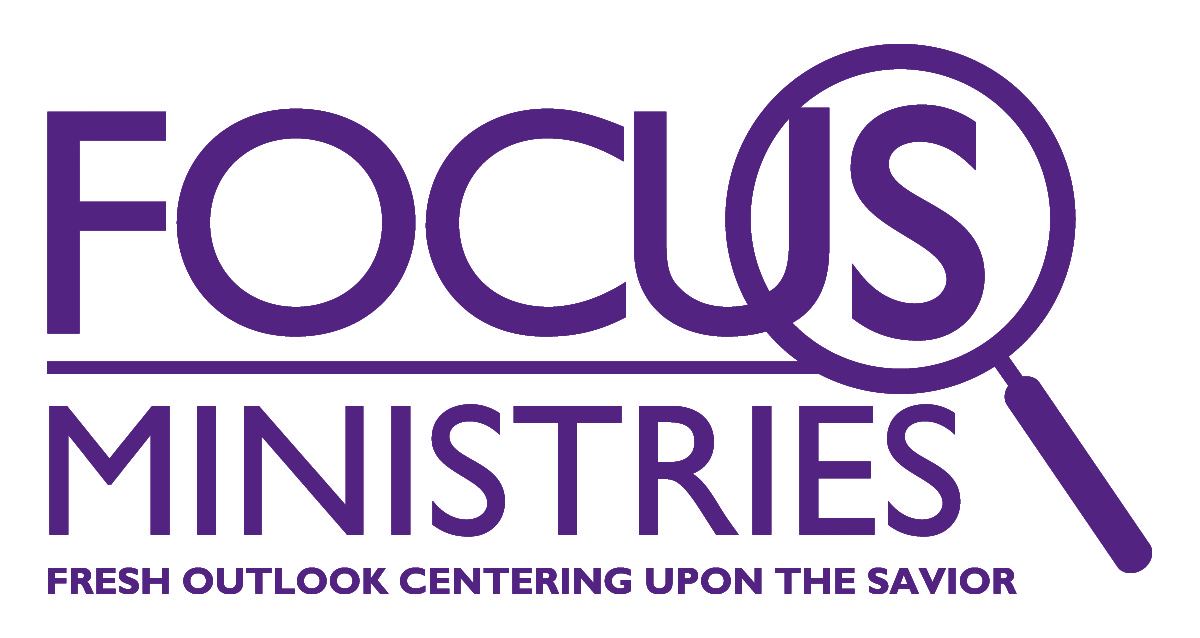Well, I got myself in a small-measure of trouble over last
week’s blog entry on “not wanting to be a Christian
anymore.” That’s OK. I do welcome the opportunity, and think it’s
good, as well as, healthy, to wrestle with the question, “Did I mean what I
said?” Before answering that question, I
have to say, I was surprised that this little controversy didn’t bother
me. There was a time when it would have. It really had nothing to do with the fact
that the words came from a sister-in-Christ that I didn’t know, because that
would have still been traumatic. I
believe it’s a testimony of two things:
week’s blog entry on “not wanting to be a Christian
anymore.” That’s OK. I do welcome the opportunity, and think it’s
good, as well as, healthy, to wrestle with the question, “Did I mean what I
said?” Before answering that question, I
have to say, I was surprised that this little controversy didn’t bother
me. There was a time when it would have. It really had nothing to do with the fact
that the words came from a sister-in-Christ that I didn’t know, because that
would have still been traumatic. I
believe it’s a testimony of two things:
1. How far the Lord has brought me on my
identity-journey. Obviously, it’s his
doing and I’ve played no role. He’s been
at work in me for sometime, reminding me who I am in Him, and it’s translated
into a renewed confidence, and, yes, maybe a little courage.
identity-journey. Obviously, it’s his
doing and I’ve played no role. He’s been
at work in me for sometime, reminding me who I am in Him, and it’s translated
into a renewed confidence, and, yes, maybe a little courage.
2. I’ve said the very same things this dear sister
has, who is tired of feeling like she has to tiptoe around what words she can
and can’t use in “Christianese.” I know
folks (whom I love), who are “rubbed wrong” by certain words we use
regularly. I’m not one who is big on
“banning” particular words from my Christian-vocab. In fact, Paul tells us to avoid foolish
controversy, senseless arguments, and divisions. So, this is not my purpose in not wanting to
be called “Christian” anymore, but rather a Jesus-follower. So, allow me the opportunity to explain a bit
better (sorry this is long).
has, who is tired of feeling like she has to tiptoe around what words she can
and can’t use in “Christianese.” I know
folks (whom I love), who are “rubbed wrong” by certain words we use
regularly. I’m not one who is big on
“banning” particular words from my Christian-vocab. In fact, Paul tells us to avoid foolish
controversy, senseless arguments, and divisions. So, this is not my purpose in not wanting to
be called “Christian” anymore, but rather a Jesus-follower. So, allow me the opportunity to explain a bit
better (sorry this is long).
After my unknown-to-me sister challenged my thinking, I went
back to Matthew, and referenced the calling of Jesus’ disciples a little
further into the book, when our Savior called Matthew (this is found in chapter
9:9-17). Too much to print, so please go
read it here: Matthew 9:9-17.
back to Matthew, and referenced the calling of Jesus’ disciples a little
further into the book, when our Savior called Matthew (this is found in chapter
9:9-17). Too much to print, so please go
read it here: Matthew 9:9-17.
No one could explain Matthew’s calling. Note: there were “tax collectors” and there
were “sinners.” Two categories of
scum-of-the-earth. Matthew was the worst
of the worst. He was “unrighteous” and
“sick.” He was despised, corrupt, a
traitor to his people, and, on top of that, a thief. He was a tax-collector. No righteous Jew would hang around a sinner,
let alone a tax-collector (say that word with particular contempt). Yet, Jesus saw some kind of
follower-potential, and he didn’t just ask Matthew to follow him, He demanded
it (take note of the exclamation mark: Follow me!). Matthew rose and followed.
were “sinners.” Two categories of
scum-of-the-earth. Matthew was the worst
of the worst. He was “unrighteous” and
“sick.” He was despised, corrupt, a
traitor to his people, and, on top of that, a thief. He was a tax-collector. No righteous Jew would hang around a sinner,
let alone a tax-collector (say that word with particular contempt). Yet, Jesus saw some kind of
follower-potential, and he didn’t just ask Matthew to follow him, He demanded
it (take note of the exclamation mark: Follow me!). Matthew rose and followed.
Here’s where it gets particularly interesting. Where did Jesus take him? Not to church. Not to the river to be baptized. Not to make right his wrongs. Not to serve in
a soup kitchen. Nope. Jesus takes him home, and invites his friends to come along. Jesus took Matthew to the most comfortable
place Matthew knew. The religious Jews
were shocked! They couldn’t believe
their eyes, or their ears! So, they
apparently wanted to see more. They hung
around outside Matthew’s home. Why? Were they hoping Jesus would tear it to
pieces in his righteous anger? Maybe
they were hoping Jesus would start parceling out all the stuff that Matthew
owned, after all he got that stuff by
stealing money from them! Again, Jesus
did the unexpected and the unexplained.
He sat down and ate with them all.
a soup kitchen. Nope. Jesus takes him home, and invites his friends to come along. Jesus took Matthew to the most comfortable
place Matthew knew. The religious Jews
were shocked! They couldn’t believe
their eyes, or their ears! So, they
apparently wanted to see more. They hung
around outside Matthew’s home. Why? Were they hoping Jesus would tear it to
pieces in his righteous anger? Maybe
they were hoping Jesus would start parceling out all the stuff that Matthew
owned, after all he got that stuff by
stealing money from them! Again, Jesus
did the unexpected and the unexplained.
He sat down and ate with them all.
This caused no small stir among the righteous religious of
the day. Some of Jesus disciples were
outside among them. Crowd control?
Maybe… So, the Jewish leaders started
asking them all their questions.
Fortunately, and apparently, Jesus heard them, and came out to
answer. Here’s basically what he tells
them:
the day. Some of Jesus disciples were
outside among them. Crowd control?
Maybe… So, the Jewish leaders started
asking them all their questions.
Fortunately, and apparently, Jesus heard them, and came out to
answer. Here’s basically what he tells
them:
1. You’ve got some learnin’ to do. You know what Hosea told you about God, “I
desire compassion not sacrifice…” Go and
transfer this knowledge from your head to your heart, then come back. “I came for sinners, not the righteous; the
sick, not the healthy.”
desire compassion not sacrifice…” Go and
transfer this knowledge from your head to your heart, then come back. “I came for sinners, not the righteous; the
sick, not the healthy.”
2. Think on this:
“no one puts new wine into old wineskins…”
“no one puts new wine into old wineskins…”
What does that mean?
It’s so critical to the C-word-controversy: A Jesus-follower is, first and foremost,
about relationships (with Jesus and others) and not religion. Religion is about doing. Being a Christian has become about religion,
and at that, a religion that is not measuring up to expectations. It’s become about what I’m against, and how I
behave (or don’t behave), rather than what I’m for and who I am. So, I want to be a follower. I want tax-collectors and sinners to see me
as a Jesus-learner, a becomer-in-process, as I walk in His footsteps (or try
to), and attempt to follow his example.
I want them to see me as compassionate, loving the unexpected and the
unexplained. I don’t want my life to be
about my hypocrisy – because I will never measure up to expectations until ONE-DAY
IN ETERNITY.
It’s so critical to the C-word-controversy: A Jesus-follower is, first and foremost,
about relationships (with Jesus and others) and not religion. Religion is about doing. Being a Christian has become about religion,
and at that, a religion that is not measuring up to expectations. It’s become about what I’m against, and how I
behave (or don’t behave), rather than what I’m for and who I am. So, I want to be a follower. I want tax-collectors and sinners to see me
as a Jesus-learner, a becomer-in-process, as I walk in His footsteps (or try
to), and attempt to follow his example.
I want them to see me as compassionate, loving the unexpected and the
unexplained. I don’t want my life to be
about my hypocrisy – because I will never measure up to expectations until ONE-DAY
IN ETERNITY.
What does the teaching about wineskins have to do with
anything? Jesus was presenting the
righteous religious with a paradigm shift…a “new thing.” In essence he’s saying, “Here’s a new idea
for ya, and you can’t put it into any old categories, because it’s too big and
too important. Religion is
obsolete. Religion and doing and
behavior is on the way out; but loving God and loving others, that’s where your
focus should go.”
anything? Jesus was presenting the
righteous religious with a paradigm shift…a “new thing.” In essence he’s saying, “Here’s a new idea
for ya, and you can’t put it into any old categories, because it’s too big and
too important. Religion is
obsolete. Religion and doing and
behavior is on the way out; but loving God and loving others, that’s where your
focus should go.”
Yes, I still want to be a Jesus-follower, but not,
necessarily a Christian.
necessarily a Christian.

